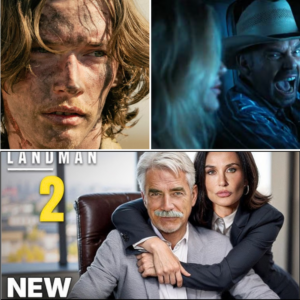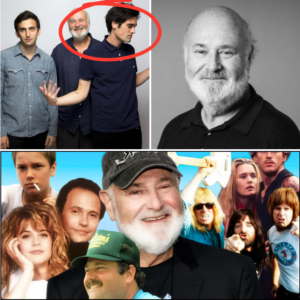In the fast-paced world of artificial intelligence, where talent is as coveted as cutting-edge algorithms, Meta’s recent hiring of Shengjia Zhao, a co-creator of OpenAI’s ChatGPT, was meant to be a game-changer. Announced in July 2025 by Meta CEO Mark Zuckerberg, Zhao’s appointment as chief scientist of Meta’s newly formed Superintelligence Labs (MSL) was heralded as a major coup in the company’s bid to dominate the AI landscape. However, just days into his role, reports surfaced that Zhao threatened to quit and return to his former employer, OpenAI, even going so far as to sign employment paperwork to rejoin the rival firm. This dramatic turn of events has exposed tensions within Meta’s ambitious AI division, raised questions about its leadership strategy, and underscored the fierce competition for top talent in the AI industry.
A High-Profile Hire
Shengjia Zhao’s credentials are nothing short of stellar. A Stanford PhD graduate with a bachelor’s degree from Tsinghua University, Zhao made significant contributions at OpenAI, where he co-authored the original ChatGPT research paper and played a pivotal role in developing GPT-4, its mini models (GPT-4.1 and o3), and the groundbreaking reasoning model o1. His work on o1, in particular, popularized the “chain-of-thought” prompting technique, which has influenced AI models across the industry. Zhao’s expertise in synthetic data generation and scaling paradigms made him a prized asset, and Meta’s decision to recruit him was part of a broader strategy to bolster its AI capabilities.
Meta’s Superintelligence Labs, launched in 2025, was designed to rival leading AI organizations like OpenAI, Google, and Anthropic. Under the leadership of Alexandr Wang, the former CEO of Scale AI, and with Zuckerberg’s direct involvement, MSL aimed to advance Meta’s open-source Llama models and pursue artificial general intelligence (AGI). Zhao was brought on board as a co-founder of the lab, tasked with setting its research agenda and driving scientific breakthroughs. Zuckerberg praised Zhao as a “pioneer” who had already distinguished himself with major innovations, expressing excitement about working closely with him to realize Meta’s vision of “personal superintelligence” accessible to all.
The hiring of Zhao was part of a broader, multibillion-dollar push by Meta to assemble a dream team of AI talent. In addition to Zhao, Meta recruited other high-profile researchers from OpenAI, including Jiahui Yu, Shuchao Bi, Hongyu Ren, and Trapit Bansal, as well as experts from Google DeepMind, Apple, and Anthropic. The company reportedly offered compensation packages worth up to hundreds of millions of dollars, with Zuckerberg personally wooing candidates through emails and invitations to his Lake Tahoe estate. Meta also invested $14.3 billion in Scale AI, bringing Wang on board as chief AI officer. These aggressive moves signaled Meta’s determination to catch up in the AI race, especially after the lukewarm reception of its Llama 4 model earlier in 2025.
A Shocking Threat to Depart
Despite the fanfare surrounding his appointment, Zhao’s tenure at Meta quickly hit a roadblock. Within days of joining, he reportedly expressed dissatisfaction and threatened to leave, even signing paperwork to return to OpenAI. The reasons for Zhao’s abrupt change of heart remain unclear, but sources suggest that internal friction and a lack of clear direction at MSL played a significant role. The lab’s chaotic environment, marked by rapid reorganizations and competing priorities, may have clashed with Zhao’s expectations as a leading researcher accustomed to OpenAI’s more focused approach.
Meta’s response was swift and decisive. To prevent Zhao’s departure, the company formalized his role as chief scientist of MSL, a title that came with significant authority over the lab’s research direction. Zuckerberg announced the decision in a Threads post, framing it as a natural step in the lab’s evolution, stating that Zhao had been the scientific lead “from day one” and that his leadership was being formalized as the team took shape. However, the timing of the announcement—shortly after Zhao’s reported threat to leave—suggests that the promotion was a strategic move to retain a key asset in Meta’s AI ambitions.
A Pattern of Instability
Zhao’s near-exit is not an isolated incident but part of a broader pattern of instability within Meta’s AI division. In August 2025, just 50 days after MSL’s launch, Meta restructured the lab into four separate teams, marking the fourth major overhaul of its AI efforts in six months. This constant churn has created a sense of uncertainty, with some researchers struggling to adapt to the shifting priorities and bureaucratic hurdles. The departure of other high-profile hires further underscores the challenges Meta faces in retaining talent.
For example, Ethan Knight, a machine-learning scientist who joined Meta from xAI, left after just weeks on the job. Avi Verma, another former OpenAI researcher, completed Meta’s onboarding process but never started his role, reportedly returning to OpenAI. Rishabh Agarwal, a research scientist who joined in April, announced his departure in August, citing a desire to pursue a “different kind of risk” despite acknowledging the compelling vision of Zuckerberg and Wang. Even longtime Meta employees, such as Chaya Nayak and Loredana Crisan, who had served nine and ten years respectively, have recently left, with Nayak reportedly joining OpenAI.
These exits highlight the difficulties Meta faces in integrating new talent with its existing workforce. The company’s aggressive poaching strategy, while successful in attracting top researchers, has led to tensions between new hires and veteran staff. Some longtime Meta leaders, such as Yann LeCun, the company’s chief AI scientist for its Fundamental AI Research (FAIR) division, have been sidelined in favor of newer executives like Zhao and Wang. This shift has created friction, with reports of internal competition for resources like computing power adding to the strain.
The AI Talent War
Zhao’s brief flirtation with leaving Meta reflects the intense competition for AI talent in Silicon Valley. Companies like OpenAI, Google, and Meta are engaged in a high-stakes battle to secure researchers who can drive the next wave of AI innovation. Meta’s strategy of offering nine-figure compensation packages and access to vast computing resources has raised eyebrows, with OpenAI’s Chief Research Officer Mark Chen likening the poaching to a “home invasion.” OpenAI CEO Sam Altman has downplayed the impact, claiming that none of his company’s “best people” have left, but the loss of researchers like Zhao and others suggests otherwise.
Meta’s challenges are compounded by its need to overcome earlier setbacks. The underperformance of Llama 4, which failed to meet expectations on key benchmarks, prompted Zuckerberg to double down on his AI investments. The creation of MSL was a direct response to these struggles, with the goal of building models that could rival ChatGPT and other leading systems. However, the rapid turnover of talent and frequent reorganizations have raised doubts about Meta’s ability to execute its vision.
Zuckerberg’s Leadership and Vision
At the heart of Meta’s AI push is Mark Zuckerberg himself, one of the few remaining Big Tech founder-CEOs. Known for his hands-on approach, Zuckerberg has personally driven the company’s AI strategy, shifting away from longtime loyalists like Chief Product Officer Chris Cox to a new generation of executives, including Zhao, Wang, and former GitHub CEO Nat Friedman. This leadership shake-up, described as the most significant in Meta’s 20-year history, reflects Zuckerberg’s urgency to position Meta as a leader in AI.
Yet, the turmoil within MSL suggests that financial incentives alone may not be enough to build a cohesive and effective team. Zhao’s threat to leave, coupled with the departures of other key hires, points to deeper issues of culture and direction. Some researchers have expressed frustration with Wang’s leadership style, noting that his lack of experience managing large teams at a Big Tech company may be a liability. Others have cited bureaucratic obstacles and the pressure to deliver results quickly as sources of discontent.
Looking Ahead
Despite these challenges, Meta remains committed to its AI ambitions. The company has invested heavily in infrastructure, including cloud computing resources to support the massive training runs required for frontier AI models. Zuckerberg has emphasized that “raw compute” is the new currency in the AI talent war, with researchers prioritizing access to GPUs over traditional organizational hierarchies. Meta’s partnership with Midjourney, a leader in AI-generated images and videos, is another step toward strengthening its capabilities.
For Shengjia Zhao, the decision to stay at Meta—at least for now—offers an opportunity to shape the future of the company’s AI efforts. His expertise and track record make him a critical asset, but his near-departure serves as a cautionary tale for Meta. As the company navigates the complexities of building a world-class AI division, it must address the internal friction and instability that have already cost it valuable talent. In the high-stakes race for AI supremacy, Meta’s ability to retain and empower researchers like Zhao will determine whether it can truly compete with the likes of OpenAI and Google.
The saga of Zhao’s brief tenure at Meta is a microcosm of the broader AI talent war, where loyalty is fleeting, and the stakes are sky-high. For now, Meta has managed to keep its star hire, but the underlying tensions suggest that the road to “personal superintelligence” will be anything but smooth.


